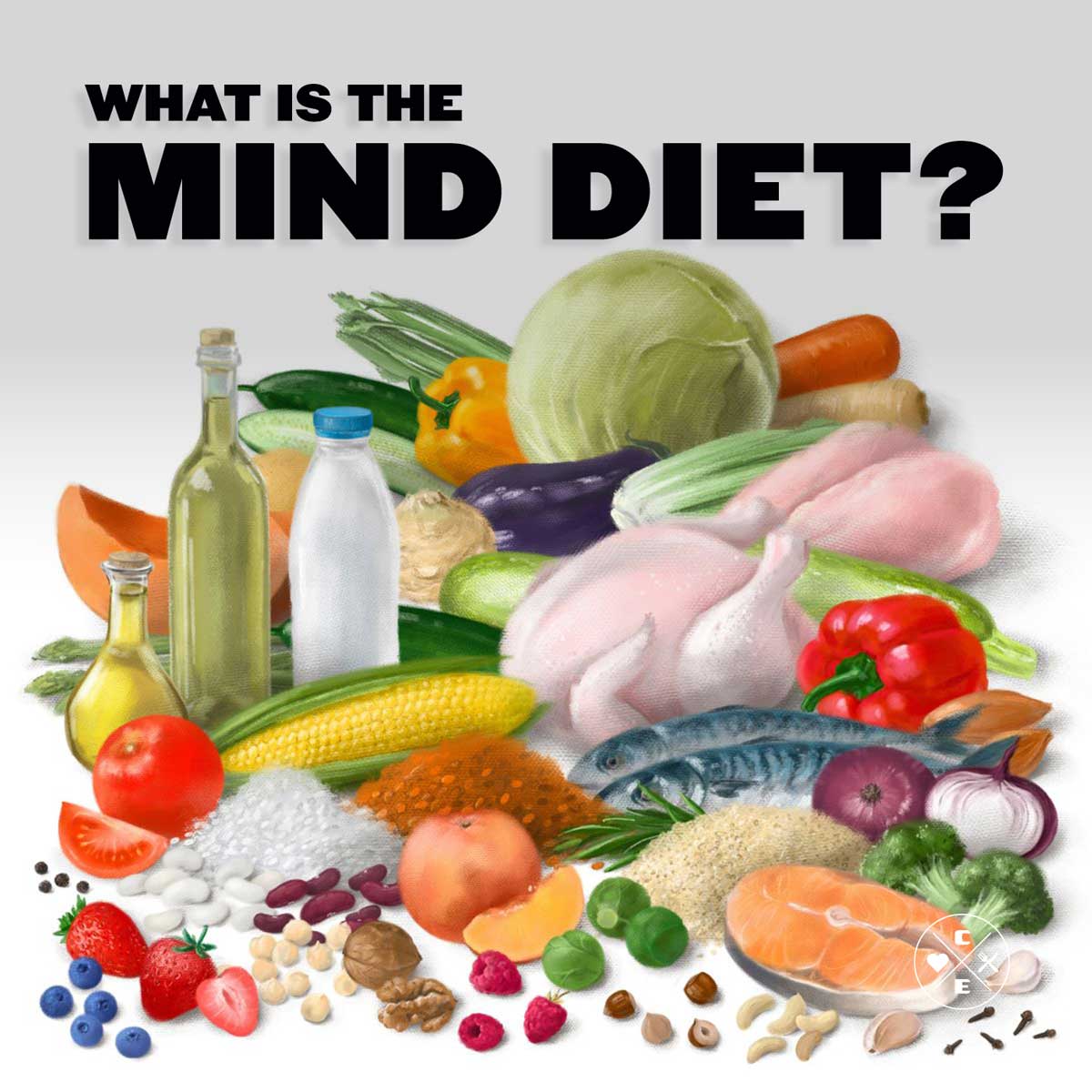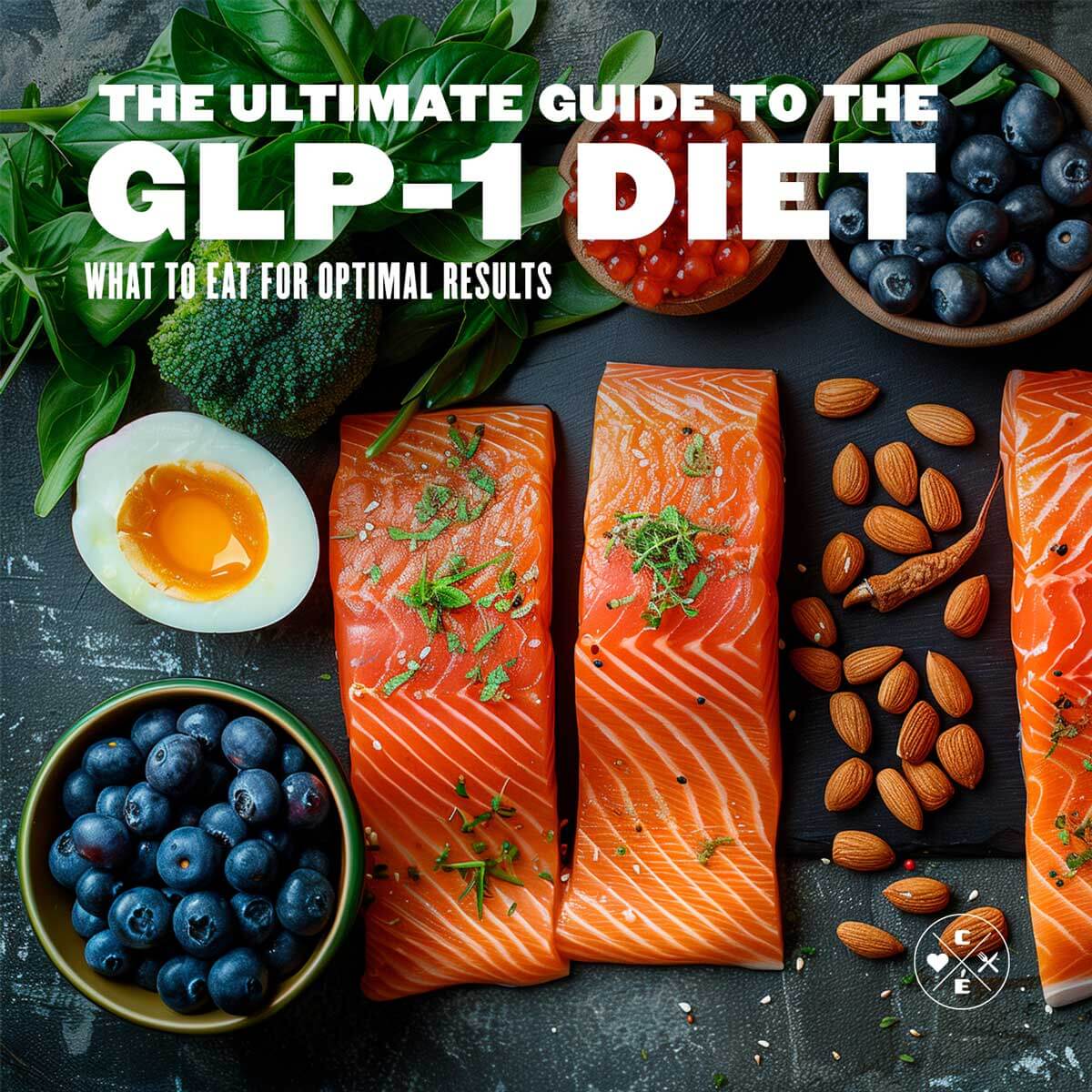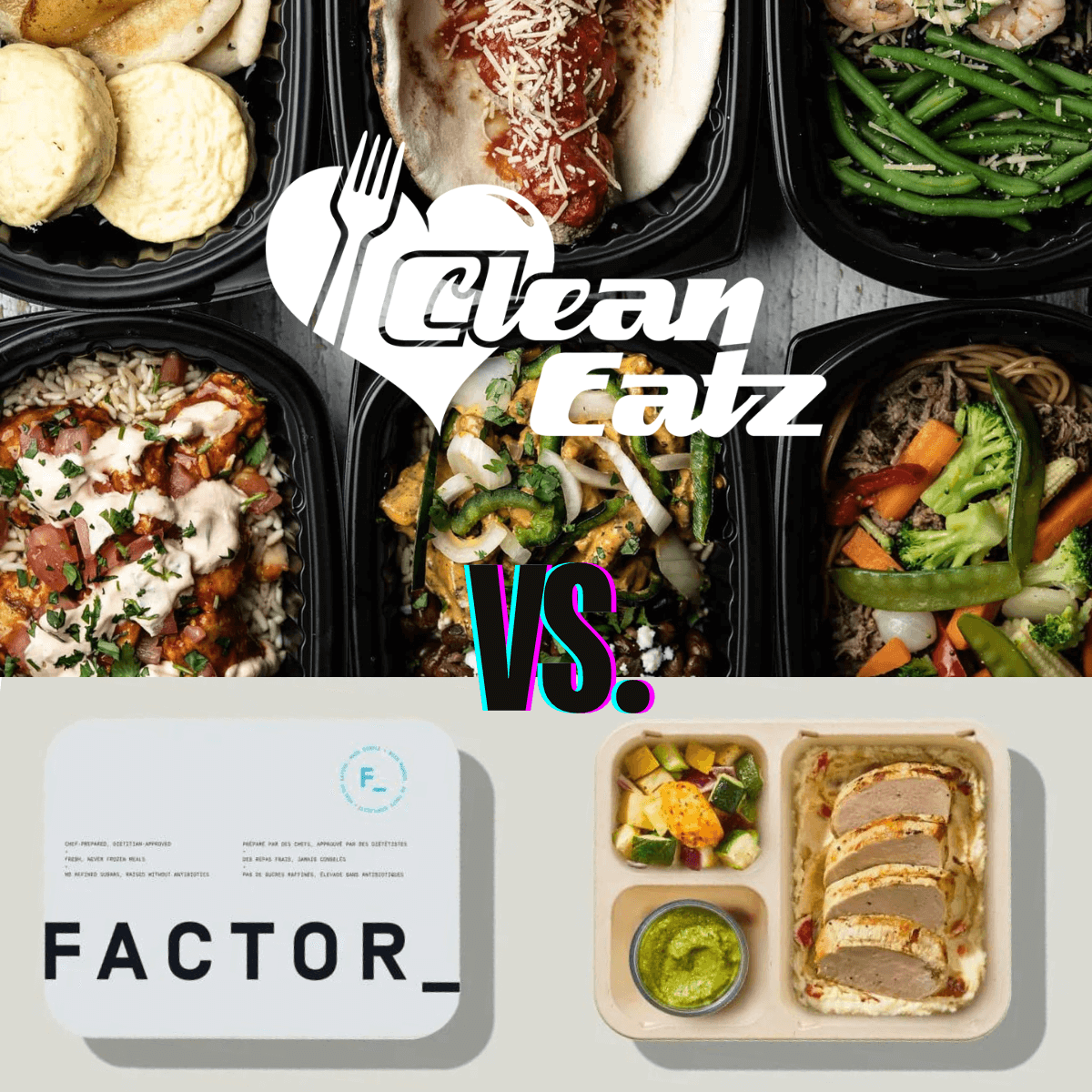
The MIND Diet: Your Guide to Better Brain Health at Any Age
Dorothy M. Shirnyl, RND
Nutrition
|
Healthy Lifestyle
|
Mental Health
17 minute read
Have you ever misplaced your keys, forgotten a name, or felt that frustrating "tip-of-the-tongue" sensation? These everyday memory blips might seem harmless, but they can also be a sign of cognitive decline. As we get older, the fear of losing our mental sharpness looms large, but what if there was a way to outsmart those forgetful moments? What if our diet could be the secret weapon in preserving our brain health?
Well, there's good news – the MIND diet might just be that secret weapon. Born from the fascinating research of the Chicago Health and Aging Project (CHAP), the MIND (Mediterranean-DASH Intervention for Neurodegenerative Delay) diet is more than a passing trend; it's a culinary roadmap designed to fuel your brain and potentially protect it from the ravages of time.
Get ready to discover the delicious power of food and unlock the secrets to a sharper, more vibrant mind – no matter your age!
In this article, we will cover the following aspects:
- What is the MIND Diet and Why We Should Be Concerned About Cognitive Health?
- Core Principles of the MIND Diet
- Benefits of the MIND Diet
- The Science Behind the MIND Diet
- How to Get Started on the MIND Diet?
- MIND Diet Challenges: Solutions & Strategies
What is the MIND Diet and Why We Should Be Concerned About Cognitive Health?
The MIND (Mediterranean-DASH Intervention for Neurodegenerative Delay) diet is a research-backed eating plan designed to promote brain health and potentially reduce the risk of cognitive decline, including Alzheimer's disease. It's a hybrid of two well-established diets, the Mediterranean and DASH diets, both known for their positive impacts on overall health. The MIND diet focuses on specific food groups and nutrients that have been scientifically linked to improved cognitive function and neuroprotection.
Core Principles of the MIND Diet
The MIND diet is a science-backed approach to eating that prioritizes brain health. It emphasizes specific food groups and nutrients while limiting others, aiming to protect cognitive function and reduce the risk of age-related decline.
By choosing the right foods, you're not just feeding your belly; you're nourishing your brain and investing in a future where your mind remains sharp, vibrant, and full of possibilities.
Here are the foods you need to include in following this diet:
1. Embrace Brain-Boosting Foods
- Load Up on Leafy Greens. Make leafy greens like spinach, kale, and collard greens a daily staple. Aim for at least six servings a week to reap their brain-protective benefits.
- Diversify Your Veggies. Don't stop at leafy greens! Fill your plate with a rainbow of vegetables, from colorful bell peppers to cruciferous broccoli and cauliflower.
- Indulge in Berries. Enjoy a variety of berries at least twice a week. These antioxidant powerhouses can help keep your mind sharp and vibrant.
- Go Nuts for Nuts. Make nuts your daily snack. A handful a day provides healthy fats, vitamin E, and other nutrients linked to improved cognitive function.
2. Choose Healthy Fats and Protein
- Drizzle with Olive Oil. Make olive oil your go-to cooking oil and salad dressing base. It's packed with antioxidants and anti-inflammatory compounds that benefit both your heart and your brain.
- Opt for Whole Grains. Replace refined grains with whole grains like brown rice, quinoa, and whole-wheat bread. These fiber-rich carbohydrates provide sustained energy and essential nutrients for optimal brain function.
- Savor the Fish. Enjoy fatty fish like salmon, tuna, and sardines at least once a week for their brain-boosting omega-3 fatty acids.
- Pick Poultry. Choose skinless chicken or turkey as lean protein sources. Grill, bake, or roast them for a healthy and delicious meal. Clean Eatz meal plans lean heavily into white meat.
- Add Beans to Your Bowl. Incorporate beans into your meals at least four times a week. They're packed with protein, fiber, and nutrients that support both heart and brain health.
3. Limit These for a Healthier Brain
- Red Meat in Moderation. Enjoy red meat occasionally, but limit it to no more than three servings per week.
- Butter and Margarine: Ditch Them! Swap these saturated fat culprits for heart-healthy olive oil.
- Cheese. A Treat, Not a Staple: Enjoy cheese as an occasional indulgence, not a daily habit.
- Skip the Sweets and Pastries. Limit sugary treats to a few times a week to avoid inflammation and cognitive decline.
- Say No to Fried and Fast Food. These processed foods are loaded with unhealthy fats, sugar, and salt, all detrimental to brain health.
4. Optional Inclusion of Wine
- Wine in Moderation. If you enjoy wine, limit yourself to one glass per day. Some studies suggest potential cognitive benefits, but consult your doctor for personalized advice.
Benefits of the MIND Diet
The MIND diet is a holistic approach to health that offers a wide array of science-backed benefits:
1. Enhanced Cognitive Function
Numerous studies have shown that adhering to the MIND diet is associated with slower cognitive decline and a reduced risk of developing mild cognitive impairment (MCI), a precursor to dementia.
Research suggests that the MIND diet's emphasis on antioxidants, anti-inflammatory compounds, and omega-3 fatty acids may play a crucial role in protecting brain cells and enhancing cognitive function.
2. Reduced Risk of Alzheimer's Disease
One of the most compelling benefits of the MIND diet is its potential to significantly reduce the risk of Alzheimer's disease. Studies have shown that individuals who closely follow the MIND diet may have a risk reduction of up to 53%.
Even moderate adherence to the diet has been associated with a 35% lower risk, suggesting that even small changes in eating habits can have a significant impact on brain health.
3. Protection Against Other Neurodegenerative Diseases
Emerging research indicates that the MIND diet may also offer protection against other neurodegenerative conditions like Parkinson's disease. The diet's focus on antioxidants and anti-inflammatory foods may help to reduce the risk of these debilitating diseases.
4. Improved Cardiovascular Health
The MIND diet shares many similarities with the Mediterranean and DASH diets, both of which have been extensively studied for their cardiovascular benefits.
By promoting a diet rich in fruits, vegetables, whole grains, and healthy fats, the MIND diet can help lower blood pressure, reduce cholesterol levels, and improve overall heart health.
5. Reduced Risk of Chronic Diseases:
The MIND diet's emphasis on whole, unprocessed foods and its limitation of saturated and trans fats, sugar, and sodium may help reduce the risk of other chronic diseases, including type 2 diabetes, certain types of cancer, and obesity.
Enhanced Overall Well-being
Beyond its specific health benefits, the MIND diet can contribute to improved overall well-being. Its emphasis on nutrient-dense foods can lead to increased energy levels, better mood, and a greater sense of vitality.
While the MIND diet shows immense promise in promoting brain health and overall well-being, it's important to remember that it's not a magic bullet. It's a lifestyle choice that, when combined with other healthy habits like regular exercise and stress management, can significantly contribute to a healthier and happier life.
The Science Behind the MIND Diet
The MIND diet's potential to promote brain health is grounded in its unique combination of nutrients and dietary patterns, each contributing to various mechanisms that safeguard cognitive function and potentially mitigate the risk of neurodegenerative diseases.
Antioxidants
The MIND diet is abundant in fruits, vegetables, and whole grains, which are naturally rich sources of antioxidants. These compounds play a crucial role in neutralizing free radicals, unstable molecules that can damage brain cells through a process called oxidative stress. Oxidative stress is implicated in the development of neurodegenerative diseases, including Alzheimer's.
By consuming a diet rich in antioxidants, individuals following the MIND diet may enhance their brain's natural defenses against this cellular damage.
Anti-Inflammatory Effects
Chronic inflammation is increasingly recognized as a key contributor to various chronic diseases, including those affecting the brain. The MIND diet incorporates a variety of foods known for their anti-inflammatory properties, such as olive oil (rich in polyphenols), fatty fish (containing omega-3 fatty acids), and berries (abundant in flavonoids). These compounds help to dampen the inflammatory response in the body, potentially protecting the brain from the detrimental effects of chronic inflammation.
Nutrient Synergy
The MIND diet provides a comprehensive array of essential nutrients that work synergistically to support brain health. Vitamin E, found in nuts and leafy greens, protects cell membranes from oxidative damage. Vitamin K, present in green leafy vegetables, is involved in cognitive function and blood clotting.
Folate, abundant in beans and whole grains, is crucial for DNA repair and nerve function.
Omega-3 fatty acids, found in fatty fish, are essential for maintaining healthy brain cell membranes and promoting communication between neurons.
The combined action of these nutrients supports optimal brain function and may help delay cognitive decline.
Reduced Beta-Amyloid
Beta-amyloid plaques are protein aggregates that accumulate in the brains of individuals with Alzheimer's disease, disrupting neuronal communication and contributing to cognitive impairment.
Emerging research suggests that the MIND diet may influence the production and clearance of beta-amyloid, potentially slowing down or even preventing the formation of these harmful plaques.
While more research is needed to fully understand the mechanisms involved, this finding highlights the potential of the MIND diet to protect against Alzheimer's disease.
How to Get Started on the MIND Diet?
Transitioning to the MIND diet doesn't have to be overwhelming. With a few simple strategies and a bit of planning,
Practical Tips for Embracing the MIND Diet:
- Do Gradual Changes. Instead of overhauling your entire diet overnight, start by gradually incorporating more MIND-friendly foods into your meals. Replace white rice with brown rice, swap sugary snacks for a handful of nuts, and add a side of leafy greens to your dinners.
- Meal Planning. Plan your meals and snacks in advance to ensure you have plenty of MIND-approved options on hand. This will help you avoid impulsive choices and stay on track. Or use a service such as Clean Eatz to make meal planning easier.
- Shop Smart. Stock your pantry and refrigerator with MIND diet essentials like whole grains, nuts, berries, leafy greens, and lean proteins. Create a shopping list to stay focused and avoid unhealthy temptations.
- Get Creative in the Kitchen. Explore new recipes that feature MIND diet ingredients. There are countless delicious and satisfying options available, from vibrant salads to hearty lentil stews and flavorful fish dishes.
- Dining Out Strategically. When eating out, look for menu options that align with the MIND diet principles. Choose grilled or baked fish or chicken over fried options, opt for salads with olive oil-based dressings, and ask for substitutions when needed.
Meal Planning and Recipe Ideas
The MIND diet offers a wealth of delicious and unexpected options for every meal and snack, ensuring you nourish your body and mind with a culinary adventure. You can get started with these meal ideas:
Breakfast
- Spiced Berry Quinoa Bowl. Start your day with a warm and satisfying quinoa bowl. Cook quinoa with almond milk and a touch of cinnamon and nutmeg. Top it with mixed berries, chopped walnuts, and a drizzle of honey.
- Savory Sweet Potato Hash. Sauté diced sweet potatoes, onions, and bell peppers in olive oil. Add in chopped kale or spinach and a sprinkle of turmeric. Top with a fried egg for a protein boost.
- Mediterranean Breakfast Pita. Fill a whole-wheat pita with hummus, crumbled feta cheese, sliced cucumbers, tomatoes, and a few Kalamata olives. Drizzle with olive oil and a squeeze of lemon juice for a burst of flavor.
Lunch
- Salmon Avocado Salad with Lemon-Dill Dressing. Combine flaked salmon with avocado chunks, cherry tomatoes, red onion, and a light lemon-dill dressing made with olive oil, lemon juice, and fresh dill. Serve on a bed of mixed greens.
- Chickpea and Spinach Curry. This flavorful curry is packed with protein and fiber. Sauté onions, garlic, and ginger in olive oil, then add chickpeas, spinach, diced tomatoes, and your favorite curry spices. Serve over brown rice or with whole-wheat naan.
- Black Bean and Corn Quesadillas. Fill whole-wheat tortillas with black beans, corn, diced avocado, cilantro, and a sprinkle of cheese (optional). Cook in a pan until golden brown and enjoy with salsa and a side salad.
Dinner
- Mediterranean Stuffed Peppers. Fill bell peppers with a mixture of quinoa, ground turkey or lentils, chopped vegetables, herbs, and spices. Bake until tender and serve with a dollop of Greek yogurt.
- Lemon Herb Chicken with Roasted Brussels Sprouts. Marinate chicken breasts in a mixture of lemon juice, olive oil, garlic, and herbs. Roast alongside Brussels sprouts tossed in olive oil and balsamic vinegar.
- Millet and Vegetable Bowl. Cook millet in vegetable broth until tender. Top with roasted vegetables like sweet potatoes, beets, and carrots, and drizzle with a tahini dressing.
Snacks:
- Dark Chocolate-Covered Strawberries. Dip strawberries in melted dark chocolate (at least 70% cocoa) for a decadent and antioxidant-rich treat.
- Trail Mix with Dried Fruit and Nuts. Combine your favorite nuts and seeds with dried fruits like cranberries, apricots, or dates for a satisfying and energy-boosting snack.
- Edamame with Sea Salt. Steam or boil edamame (soybeans) and sprinkle with sea salt for a protein-rich snack.
- Kale Chips. Toss kale leaves with olive oil and your favorite spices, then bake until crispy for a healthy and satisfying alternative to potato chips.
Remember: The MIND diet is not just about adhering to a list of foods but about embracing a delicious and diverse way of eating that nourishes your brain and body. Don't be afraid to experiment with different recipes and ingredients to discover new favorites that keep your taste buds excited and your brain healthy.
MIND Diet Grocery List as Your Ultimate Guide to a Brain-Boosting Shopping Cart
Ready to embark on your MIND diet journey? This shopping list will equip you with the building blocks for delicious, brain-boosting meals and snacks. Remember, the key is to focus on whole, unprocessed foods that nourish your body and mind.
-
Leafy Greens
- Spinach: Baby spinach for salads, mature spinach for cooking.
- Kale: Curly kale for chips, lacinato kale for soups and stews.
- Romaine Lettuce: Hearts for salads, chopped for wraps.
- Collard Greens
- Swiss Chard: Rainbow chard adds a pop of color to dishes.
- Arugula: Peppery arugula adds a zing to salads and sandwiches.
- Turnip Greens
- Mustard Greens: Perfect for sautéing.
- Watercress: Ideal for salads or as a garnish.
-
Other Vegetables
- Broccoli & Cauliflower: Fresh or frozen florets for roasting, steaming, or stir-frying.
- Bell Peppers: Choose a variety of colors for maximum nutritional value.
- Carrots: Baby carrots for snacking, whole carrots for roasting or grating.
- Onions: Yellow, red, or white onions for flavor and versatility.
- Garlic: Fresh cloves for savory dishes.
- Cucumbers: Look for firm cucumbers with vibrant green skin.
- Tomatoes: Choose ripe, juicy tomatoes for salads or sauces.
- Asparagus: Thin or thick spears for roasting, grilling, or steaming.
- Beets: Roasted or pickled for a sweet and earthy addition to salads.
- Brussels Sprouts: Trimmed and halved for roasting or shredding for salads.
- Eggplant: Choose firm eggplants with smooth, glossy skin.
- Okra: Look for young, tender pods for best flavor.
- Squash: Butternut, acorn, or spaghetti squash for roasting or pureeing.
-
Berries
- Strawberries
- Blueberries
- Raspberries
- Blackberries
- Cranberries
- Cherries
- Pomegranates
-
Nuts & Seeds
- Almonds
- Walnuts
- Cashews
- Pecans
- Pistachios
- Sunflower Seeds
- Pumpkin Seeds
- Chia Seeds
- Flaxseeds
-
Healthy Fats
- Extra-Virgin Olive Oil: Opt for high-quality, cold-pressed olive oil for maximum flavor and health benefits.
- Avocado Oil: Suitable for cooking and dressings.
-
Whole Grains
- Brown Rice
- Quinoa
- Oats
- Whole-Wheat Bread
- Whole-Wheat Pasta
- Barley
- Farro
- Bulgur Wheat
-
Fish & Seafood
- Salmon
- Tuna
- Sardines
- Mackerel
- Trout
-
Poultry
- Chicken Breasts
- Chicken Thighs
- Ground Turkey
-
Beans & Legumes
- Lentils
- Chickpeas
- Black Beans
- Kidney Beans
- Cannellini Beans
-
Optional
- Wine (Red or White)
-
Herbs & Spices
- Basil
- Oregano
- Thyme
- Rosemary
- Turmeric
- Cumin
- Paprika
Strategies For Dining Out And Staying On Track While On MIND Diet
Remember, dining out on the MIND diet is about making informed choices and savoring the experience without compromising your brain health. Here are some tips to remember:
- Scope out menus online beforehand to identify MIND-friendly options.
- Decide what you'll order before arriving to avoid impulse decisions.
- Don't hesitate to ask about cooking methods and ingredients to make informed choices.
- Request substitutions for healthier alternatives, like brown rice or olive oil dressing.
- Prioritize dishes with abundant vegetables, either as the main course or a generous side.
- Choose grilled, baked, or steamed fish, seafood, or poultry over red or processed meats.
- Beware of hidden fats and sugars in sauces and dressings. Ask for them on the side.
- Restaurant portions can be oversized. Share a dish or ask for a to-go box early on.
- Occasional indulgences are okay. The MIND diet is about balance, not deprivation.
- Pack a MIND-friendly snack if you're concerned about limited options.
MIND Diet Challenges: Solutions & Strategies
With a few simple strategies and a bit of creativity, you can overcome common hurdles and make the MIND diet a sustainable and enjoyable part of your life.
|
Challenge |
Solutions |
|
Limited access to fresh produce |
Choose frozen or canned fruits and vegetables, buy in bulk when fresh produce is in season, grow your own herbs. |
|
Budget constraints |
Prioritize dried beans and lentils over meat, buy seasonal produce, look for sales and discounts. |
|
Picky eating habits |
Introduce new foods gradually, find creative recipes incorporating MIND-friendly ingredients. |
|
Lack of time for meal prep |
Prepare large batches of grains or beans on weekends, utilize leftovers for quick and easy meals. |
|
Social situations (dining out, gatherings) |
Research restaurant menus beforehand, make mindful choices, and ask for modifications. |
|
Personalizing the diet |
Experiment with different recipes and flavors, adapt to dietary restrictions (e.g., vegetarian, gluten-free). |
|
Need for guidance |
Consult a registered dietitian for personalized advice and meal planning assistance. |
Frequently Asked Questions
Is the MIND diet just for older adults?
Nope, it benefits brains of all ages!
Can I still enjoy treats on the MIND diet?
Absolutely, but moderation is key. Think of them as occasional rewards.
Is wine mandatory?
It's optional. Chat with your doctor to see if it's a good fit for you.
Can vegetarians/vegans follow the MIND diet?
Definitely! Plant-based proteins and omega-3 sources like walnuts and flaxseeds are your friends.
How quickly will I see results?
Think of it as a marathon, not a sprint. Consistent healthy choices lead to long-term benefits.
Is the MIND diet expensive?
Not necessarily. Prioritize seasonal produce, buy in bulk, and cook at home to save.
Conclusion
With dementia cases skyrocketing and the desire to live long, fulfilling lives at an all-time high, the MIND diet is a ray of sunshine. Combining the most brain-boosting elements of the Mediterranean and DASH diets, it champions foods scientifically proven to enhance cognitive function and reduce the risk of dreaded neurodegenerative diseases like Alzheimer's.
By incorporating its principles into your lifestyle, you're not just eating well; you're investing in a sharper, more vibrant future.
Ready to discover the power of food for a brighter tomorrow? Your journey to a healthier brain starts now.
References
Akbar, Zoha, et al. “Associations of the MIND Diet with Cardiometabolic Diseases and Their Risk Factors: A Systematic Review.” Diabetes, Metabolic Syndrome and Obesity, vol. Volume 16, 1 Oct. 2023, pp. 3353–3371, www.ncbi.nlm.nih.gov/pmc/articles/PMC10614652/#:~:text=Hence%2C%20similar%20to%20the%20Mediterranean, https://doi.org/10.2147/dmso.s427412.
“Diet Review: MIND Diet.” The Nutrition Source, 15 July 2022, nutritionsource.hsph.harvard.edu/healthy-weight/diet-reviews/mind-diet/#:~:text=Researchers%20found%20a%2053%25%20lower. Accessed 2 July 2024.
Fu, Jialei, et al. “Association between the Mediterranean Diet and Cognitive Health among Healthy Adults: A Systematic Review and Meta-Analysis.” Frontiers in Nutrition, vol. 9, 2022, p. 946361, pubmed.ncbi.nlm.nih.gov/35967772/, https://doi.org/10.3389/fnut.2022.946361.
Gómez-Pinilla, Fernando. “Brain Foods: The Effects of Nutrients on Brain Function.” Nature Reviews Neuroscience, vol. 9, no. 7, July 2008, pp. 568–578, www.ncbi.nlm.nih.gov/pmc/articles/PMC2805706/, https://doi.org/10.1038/nrn2421.
Morris, Martha Clare, et al. “MIND Diet Slows Cognitive Decline with Aging.” Alzheimer’s & Dementia, vol. 11, no. 9, Sept. 2015, pp. 1015–1022, www.sciencedirect.com/science/article/abs/pii/S1552526015001946, https://doi.org/10.1016/j.jalz.2015.04.011.
“What Do We Know about Diet and Prevention of Alzheimer’s Disease?” National Institute on Aging, www.nia.nih.gov/health/alzheimers-and-dementia/what-do-we-know-about-diet-and-prevention-alzheimers-disease#:~:text=An%20analysis%20of%20diet%20and
Related Articles
Clean Eatz Kitchen vs. Factor_
10 minute read



